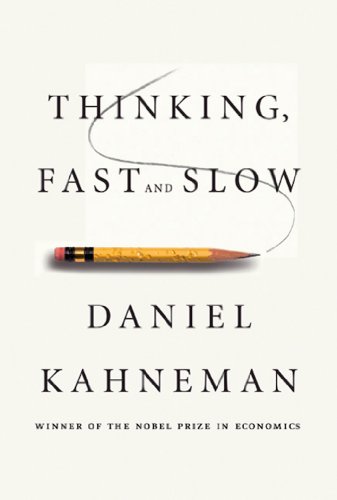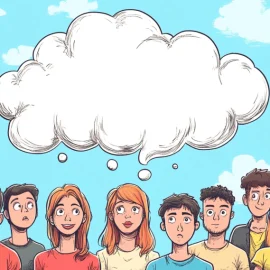

This article is an excerpt from the Shortform summary of "Thinking, Fast and Slow" by Daniel Kahneman. Shortform has the world's best summaries of books you should be reading.
Like this article? Sign up for a free trial here .
What is the “mere exposure effect”? How does it work? What’s a good mere exposure effect example?
The mere exposure effect is the idea that exposing someone to an input repeatedly makes them like it more. For example, having a memory of a word, phrase, or idea makes it easier to see again.
We’ll cover mere exposure effect examples that demonstrate its power, and how you can use the mere exposure effect to create cognitive ease.
Mere Exposure Effect: Example
Exposing someone to an input repeatedly makes them like it more. Having a memory of a word, phrase, or idea makes it easier to see again.
Mere Exposure Effect Example experiments:
- Mere Exposure Effect Example #1: People are exposed to a set of made-up names. A few days later, they are given a list of names and asked to point out which names belong to celebrities. The subjects are more likely to falsely identify the random names as those of celebrities if they were previously exposed to them.
- Mere Exposure Effect Example #2: People are exposed to a set of Turkish words at different frequencies. When they are later asked to rate a set of words on a good-bad scale, the subjects perceive the more frequently shown words as more positive.
Even a single occurrence can make an idea familiar. This is the power of the mere exposure effect.
- Mere Exposure Effect Example #3: Say a car lights on fire a block away from your house. The first time, it’s shocking. The second time you see it, it is far less surprising than the first time it happened.
If the new idea fits your existing mental framework, you will digest it more easily.
Evolutionarily, the mere exposure effect benefits the organism by saving cognitive load. If a stimulus has occurred in the past and hasn’t caused danger, later occurrences of that stimulus can be discarded. This saves cognitive energy for new surprising stimuli that might indicate danger.
However, this can cause a potentially dangerous bias. You will tend to like the ideas you are exposed to most often, regardless of the merit of those ideas.
You cannot easily distinguish familiarity from the truth. If you think an idea is true, is it only because it’s been repeated so often, or is it actually true? (Shortform note: thus, be aware of “common sense” intuitions that seem true merely because they’re repeated often, like “searing meat seals in the juices.”)
Furthermore, if you trust a source, you are more likely to believe what is said.
Mere Exposure Effect and Cognitive Ease
The mere exposure effect is one way of increasing cognitive ease.
Cognitive ease is an internal measure of how easy or strained your cognitive load is.
In a state of cognitive ease, you’re probably in a good mood, believe what you hear, trust your intuitions, feel the situation is familiar, are more creative, and are superficial in your thinking. System 1 is humming along, and System 2 accepts what System 1 says.
In a state of cognitive strain, you’re more vigilant and suspicious, feel less comfortable, invest more effort, and trigger System 2. You make fewer errors, but you’re also less intuitive and less creative.
Cognitive ease increases with certain inputs or characteristics of the task, including:
- Repeated experience
- Clear display
- Primed idea
- Good mood
You don’t consciously know exactly what it is that makes it easy or strained. Rather, the ease of the task gets compressed into a single “is this easy” factor that then determines the level of mental strain you need to apply.
To increase your own cognitive ease and others’, use the mere exposure effect to make odd or difficult concepts more familiar.
———End of Preview———

Like what you just read? Read the rest of the world's best summary of "Thinking, Fast and Slow" at Shortform . Learn the book's critical concepts in 20 minutes or less .
Here's what you'll find in our full Thinking, Fast and Slow summary :
- Why we get easily fooled when we're stressed and preoccupied
- Why we tend to overestimate the likelihood of good things happening (like the lottery)
- How to protect yourself from making bad decisions and from scam artists






